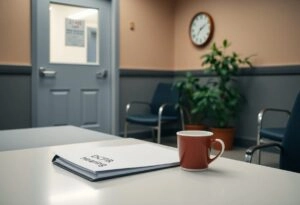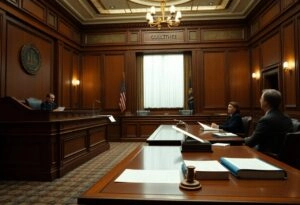How Can You Effectively Manage DCF Reporting?
The Clark family in Massachusetts is living peacefully until one day, they receive a call from the Department of Children and Families (DCF) related to DCF reporting. Their neighbor, seeing bruises on their son Ayden from soccer, mistakenly decides to report abuse to DCF. Panic sets in as they wonder what to do if DCF is investigating them.
The Clarks are terrified. They know the bruises are from Ayden’s soccer games, but Massachusetts DCF doesn’t know that. DCF comes to their home within 24 hours and threatens to remove their children. The fear caused by this simple misunderstanding is overwhelming.
If you find yourself in a similar situation, this guide will help you understand DCF’s policies and procedures. Understanding DCF and your rights will help make sure the situation does not escalate any further.
What to Do If DCF is Investigating You
If DCF is investigating you, knowing your rights is key. When DCF first contacts you, stay calm and gather as much information as you can.
Who Can File a 51A Report?
Teachers, doctors, and police officers must file a 51A report if they suspect abuse or neglect. The law requires these mandated reporters to report any suspected child abuse, neglect or exploitation. However, anyone else, including neighbors and family members, can file a report if they have reasonable suspicion. For immediate concerns, they may contact the abuse hotline, available 24 hours a day, 7 days a week.
Reporters are always kept anonymous, which is intended to prevent genuinely concerned citizens from being retaliated against. However, it also empowers bad actors to use the system to their advantage.
What Happens After a 51A Report is Filed?
Once a 51A report is filed, DCF screens the claims to determine if they need to investigate further. This screening process involves collecting information from the person who filed the report and may include contacting other witnesses involved with the alleged incident. If the allegations suggest the child has been abused or neglected, DCF will proceed with a full investigation.
Detailed Steps:
- Screening Process: DCF reviews the report and any immediate danger to the child. This initial assessment is crucial to determining the urgency of the situation.
- Information Gathering: DCF contacts relevant witnesses to gather more information about the child’s condition and the family situation.
- Decision to Investigate: Based on the gathered information, DCF decides whether to proceed with a 51B investigation.
Statistics show that in Massachusetts, thousands of 51A reports are filed each year, highlighting the importance of understanding this process.
The DCF Investigation Process

When the DCF investigates a case, they follow several structured steps. Knowing these steps can help families navigate the process of a DCF investigation. Here’s an overview of what to expect.
The 51B Investigation Process
Once a case is screened in, DCF conducts a 51B investigation to thoroughly examine the claims. This involves multiple steps to gather comprehensive evidence and assess the child’s safety.
- Interviews: DCF may conduct interviews with the child, parents, and other relevant individuals to gather firsthand accounts.
- Home Visits: Investigators visit the home to observe conditions and assess the child’s safety.
- Evidence Collection: DCF gathers evidence such as medical records and school reports to verify the claims.
The 51B investigation is an extremely intrusive process that is intended to assess the need for intervention. However, since many families get wrongfully caught up in this system, they face the risk of DCF making a hasty, incorrect decision
Initial Contact with DCF
When DCF contacts you, they are supposed to explain the claims against you. Listen carefully to understand the nature of the allegations. You have a right to this knowledge, so do not answer any questions before it is provided. It can also help to have a supportive friend or relative with you during this initial contact for emotional support.
Legal Rights During a DCF Investigation
Knowing your rights can help you during an investigation by DCF. However, it is even more powerful to have an experienced attorney by your side ensuring DCF does not overreach in its investigation.
Right to Legal Representation
You have the right to a lawyer during all aspects of the investigation. A DCF lawyer can help protect your rights and guide you through the process.
- Why You Need a Lawyer: Having a lawyer ensures you only provide DCF enough evidence to prove your innocence. They can also convey the legally relevant side of your story and minimize the risk of further state intervention.
- Finding a Lawyer: Look for experienced DCF attorneys. They will have a proven track record of getting cases unsupported and overturned. Do an intake call to ensure that you have a good rapport with the attorney prior to hiring them.
Statistics show that families with legal representation often achieve better outcomes in DCF cases. In Massachusetts, legal aid organizations can assist those who cannot afford a lawyer.
Key Takeaway
Understanding how to handle DCF reporting is crucial for protecting your family’s rights during a DCF investigation. This article has covered the steps in a DCF investigation, from initial contact to your legal rights. Staying informed and cooperating with DCF can help you navigate this challenging process.
Seeking legal representation can significantly impact the outcome of a DCF investigation. Being prepared and informed is your best defense.
Navigate Your DCF Reporting Process with Confidence—Book a Consultation!
Understanding DCF reporting procedures is key to safeguarding your family’s rights. At the Law Office of Kevin Seaver, we specialize in DCF investigations, assessments, and fair hearings. Facing a DCF investigation can be daunting, but with expert legal help, you can navigate this process effectively. Contact us today to ensure your rights are fully protected.
Located in Massachusetts, we are committed to helping families manage DCF reporting and investigations with the utmost confidence and legal expertise.
Don’t let a DCF investigation escalate. Book a consultation with the Law Office of Kevin Seaver or call us at (617) 263-2633 for immediate assistance.
You find yourself in this situation, it’s advisable to seek legal representation from a qualified attorney, like those at the Law Office of Kevin Seaver, who can advocate for your rights and guide you through the complex process of a DCF investigation.
Remember that the ultimate goal of DCF is to ensure the safety and well-being of children while supporting families in crisis.
Please note that this article does not create an Attorney-Client relationship between our law firm and the reader and is provided for informational purposes only. Information in this article does not apply to all readers.
Readers should not rely on this information as legal advice and should seek specific counsel from the attorney based on personal circumstances. Thank you.
Kevin Patrick Seaver is a Massachusetts DCF Defense Lawyer who represents parents against false child abuse allegations.






